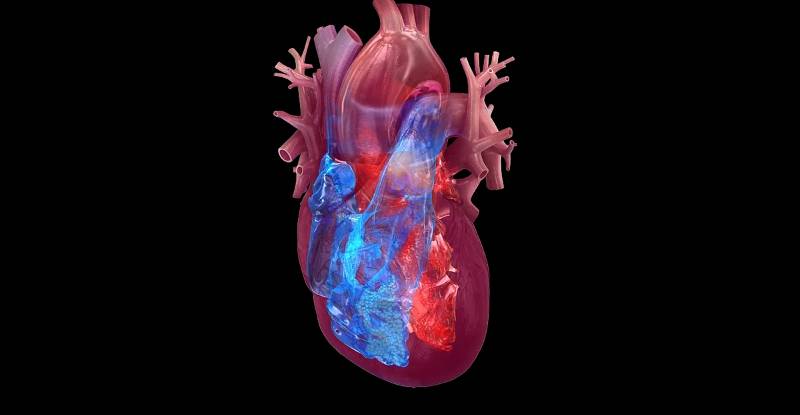Better heart health has now been associated with a slower rate of biological aging, potentially reducing the risk of heart disease, stroke, and death, according to a new study published in the Journal of the American Heart Association. Researchers found that the benefits gained from better heart health may be related to a process involved in the aging of the body and its cells in a study of more than 5,000 adults with a mean age of 56 years.
“Our study findings tell us that no matter what your actual age is, better heart-healthy behaviors and managing heart disease risk factors were associated with a younger biological age and a lower risk of heart disease and stroke, death from heart disease and stroke and death from any cause,” said Jiantao Ma, Ph.D., senior study author and an assistant professor in the division of nutrition epidemiology and data science at the Friedman School of Nutrition Science and Policy at Tufts University in Boston.
DNA Methylation: A Potential Mechanism Linking Cardiovascular Health and Biological Aging
The study analyzed whether a chemical modification process known as DNA methylation, which regulates gene expression, may be one mechanism by which cardiovascular disease health factors affect cell aging and the risk of death. DNA methylation levels are the most promising biomarker to estimate biological age, which can be influenced by lifestyle factors and stress in addition to genetic makeup.
Researchers examined health data for 5,682 adults enrolled in the Framingham Heart Study, assessing each participant using the American Heart Association’s Life’s Essential 8 tool, which scores cardiovascular health between 0-100 using a composite of four behavioral measures and four clinical measurements. Participants were also assessed using tools that estimate biological age based on DNA methylation and a tool that assesses a person’s genetic tendency towards accelerated biological aging.
Improved Cardiovascular Health Scores Associated with Lower Risk of Adverse Outcomes
The analysis found that for each 13-point increase in an individual’s Life’s Essential 8 score, the risk of developing cardiovascular disease for the first time was reduced by about 35%, death from cardiovascular disease was reduced by 36%, and death from any cause was reduced by 29%. In participants with a genetic risk profile making them more likely to have an accelerated biological age, the Life’s Essential 8 score had a larger impact on outcomes potentially via DNA methylation.
“While there are a few DNA methylation-based, biological age calculators commercially available, we don’t have a good recommendation regarding whether people need to know their epigenetic age,” Ma said. “Our message is that everyone should be mindful of the eight heart disease and stroke health factors: eat healthy foods; be more active; quit tobacco; get healthy sleep; manage weight; and maintain healthy cholesterol, blood sugar and blood pressure levels.”
Randi Foraker, Ph.D., M.A., FAHA, co-author of the Life’s Essential 8: Updating and Enhancing the American Heart Association’s Construct of Cardiovascular Health, said the findings are consistent with prior research, highlighting how cardiovascular health can impact biological aging and has important implications for healthy aging and prevention of cardiovascular disease and potentially other health conditions.
The study’s findings are limited due to the predominantly European ancestry of the participants, and further research is needed to investigate the relationship of cardiovascular risk factors and DNA methylation in other racial and ethnic groups.
According to the American Heart Association’s 2024 Heart Disease and Stroke Statistics, heart disease and stroke claimed more lives in the U.S. in 2021 than all forms of cancer and chronic lower respiratory disease combined and accounted for approximately 19.91 million global deaths.


